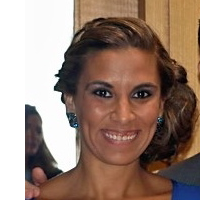Our Counselors Answered:
Is the disability support services provided in college the same as those in high school?
 Karen Ekman-BaurDirector of College CounselingLeysin American School
Karen Ekman-BaurDirector of College CounselingLeysin American School
Is the disability support services provided in college the same as those in high school?
The level of disability support will vary from one college to another and surely from high school to college. Students with disabilities will no longer be living at home with their parents and, depending upon their specific disabilities and the extent of their impairment, will usually require more support than was available in their high schools. The Americans with Disabilities Act, passed in 1990, guarantees that all U.S. colleges/universities provide some level of services/accommodations for students with disabilities. Some institutions, taking this requirement further, offer comprehensive programs supporting learning and/or physically disabled students. Students should seek schools which offer the best support for their specific disabilities. Try the following websites:
http://www.college-scholarships.com/learning_disabilities.htm
http://concordspedpac.org/Colleges-LD.html
http://www.dmoz.org/Society/Disabled/Education/Colleges_and_Universities
 Karen Ekman-BaurDirector of College CounselingLeysin American School
Karen Ekman-BaurDirector of College CounselingLeysin American School
Is the disability support services provided in college the same as those in high school?
The level of disability support will vary from one college to another and usually from high school to college. Students with disabilities will no longer be living at home with their parents and, depending upon their specific disabilities and the extent of their impairment, will usually require more support than was available in their high schools. The Americans with Disabilities Act, passed in 1990, guarantees that all U.S. colleges/universities provide some level of services/accommodations for students with disabilities. Some institutions, taking this requirement further, offer comprehensive programs supporting learning and/or physically disabled students. Students should seek schools which offer the best support for their specific disabilities. Try the following websites:
http://www.college-scholarships.com/learning_disabilities.htm
http://concordspedpac.org/Colleges-LD.html
http://www.dmoz.org/Society/Disabled/Education/Colleges_and_Universities
The U.S. Department of Education details the Rights and Responsibilities of Disabled Students at: www2.ed.gov/about/offices/list/ocr/transition.html.
 Annie ReznikCounselor/CEOCollege Guidance Coach
Annie ReznikCounselor/CEOCollege Guidance Coach
Is the disability support services provided in college the same as those in high school?
In terms of learning differences, accommodations provided are largely the same. Students with documentation are able to gain needed accommodations for both classroom and test settings. But, the overall philosophy and emphasis is different. High schools support students by helping them to gain understanding about their learning style. Colleges presume that students know themselves and are prepared to self advocate.
 Reecy ArestyCollege Admissions/Financial Aid Expert & AuthorPayless For College, Inc.
Reecy ArestyCollege Admissions/Financial Aid Expert & AuthorPayless For College, Inc.
Is the disability support services provided in college the same as those in high school?
Minors are treated differently than adults, and college is an around the clock experience. There are differences too numerous to mention.
 Mary Mariani
Mary Mariani
Is the disability support services provided in college the same as those in high school?
No they are not. Some of the services are better and some not so. But each college has to have services for students with disabilities. Students have to seek out the services. It is not like high school where students are identified, and then the system makes sure that the services are provided. In the college setting, the student has to be his/her own advocate. Most students should have an active IEP or 504 Plan that started way before entrance into a college/university program.
I did find that the Missouri State University in Springfield was excellent. My own son has learning disabilities and had an IED (Individual Education Plan) since he was in elementary school. The school administration was very helpful in assisting him in getting what was needed. BUT, I worked very closely with the learning disability lab and staff (of course with my son’s permission).
It is not difficult to get longer time and testing in a quieter environment or modifications made for students who have visual or hearing disabilities. But again, the student has to either be his/her own advocate or have someone who will advocate for him/her.
 Renee Boone
Renee Boone
Is the disability support services provided in college the same as those in high school?
Not all services offered at the colleges are the same. For a decent comprehensive guide, check out the K&W Guide to Colleges for Students with Learning Disabilities. You might want to familiarize yourself with the excellent programs offered by Landmark College in Putney, VT, including their 2-year undergraduate program, their transitional program for high school students and their visiting college students semester program. Other colleges, including U Arizona,
U Denver, Curry MA and Muskingam OH offer specialized programs to support learning differences. It is imperative that you are proactive and self-advocating in seeking help both in admissions and while a student on the campus.
 Renee Boone
Renee Boone
Is the disability support services provided in college the same as those in high school?
Not all services offered at the colleges are the same. For a decent comprehensive guide, check out the K&W Guide to Colleges for Students with Learning Disabilities. You might want to familiarize yourself with the excellent programs offered by Landmark College in Putney, VT, including their 2-year undergraduate program, their transitional program for high school students and their visiting college students semester program. Other colleges, including U Arizona,
U Denver, Curry MA and Muskingam OH offer specialized programs to support learning differences. It is imperative that you are proactive and self-advocating in seeking help both in admissions and while a student on the campus.
 Bill PrudenHead of Upper School, College CounselorRavenscroft School
Bill PrudenHead of Upper School, College CounselorRavenscroft School
Is the disability support services provided in college the same as those in high school?
Obviously that will depend in part on the nature of the exact support you received in high school. However, given the nature of the Americans With Disabilities Act there are certain things that every school, regardless of the level, must provide, and so anything that was a part of your high school’s response to that edict should still carry over. In general if you have a documented disability and you were given accommodation in response to the diagnosis in high school, it should carry over so long as the testing and the documentation are up to date. A student will have to contact the appropriate office at their college upon enrolling so that the process can be put in place, but it should not be an issue so long as appropriate communication is undertaken.
 Nancy MilneOwnerMilne Collegiate Consulting
Nancy MilneOwnerMilne Collegiate Consulting
Is the disability support services provided in college the same as those in high school?
Every campus will have a different delivery system for student support services. While some schools specialize in meeting the needs of students with learning differences, others will expect you to totally manage on your own. When you are doing campus visits you need to make sure you address these concerns, so that there are no surprises once you arrive in the fall. Some institutions will charge for services, others will use student tutors vs. professional tutors, and others will expect you to make all of your own arrangements. Whatever the case, make sure you are realistic about whether you can be successful given the set up on the campus you choose.
 Ed GarciaAssistant Professor/CounselorAustin Community College
Ed GarciaAssistant Professor/CounselorAustin Community College
No…
In high school it was up to the school to identify students, and then provide appropriate services. At the high school level students could be identified and then recommended for testing by a faculty, staff, administrator or a parent.
If a disability is identified then it was up to the school to provide special education services through the development of an individualized education plan (IEP).
At the college level students must self identify. They must contact the appropriate office and self identify. Usually offices that assist student with disabilities will be called “Office for Students with Disabilities,” “Resource Center for Students with Disabilities,” or “Office for Accommodations for Students with Disabilities.” When students self identify and attempt to qualify for services they will need to complete some sort of application process. In addition, make sure you have documentation, documentation, documentation! Make sure you have documentation of your disability.
 Corey FischerPresidentCollegeClarity
Corey FischerPresidentCollegeClarity
That depends…
Many colleges have far better support services for students than most high schools, but that does not mean all do. It is very much a case by case situation. You need to look closely at the services provided by the colleges you are considering. If you need a more comprehensive program it might be smart to hire a consultant to help you. It can become overwhelming to navigate and a consultant who knows about LD services will know which colleges have better programs. There are not actually a lot of colleges with the highest level, most thorough services.
 Tyler BurtonPresident Burton College Tours
Tyler BurtonPresident Burton College Tours
There is no guarantee
Students who are receiving support services in high school may have an IEP. Students who will require a continuation of services when they attend college will need to switch to a 504 Plan which will be covered by the American With Disabilities Act. That is the technical jargon. In short if you are receiving services now you will need to provide educational testing that has been administered within the past three years that documents your disability in order to have a continuation of services. The level of services change and students may receive accommodations, but not the skills support that they may have been receiving in high school. Some colleges have academic support programs which are formal for students with LD and other schools provide services like a writing lab which is available to all students.
 Lisa CarltonOwnerwww.collegematchpoint.com
Lisa CarltonOwnerwww.collegematchpoint.com
How To Access College Disability Services
No! Many students and parents are confused about this issue. Disability Support Services in college are different from high school. Colleges do not use IEP’s or 504’s. Don’t let this discourage you.
I find many of my students get great services in college. The key is to understand the process to follow to access the services. The first step to accessing services is to have up to date testing that clearly states your diagnosis and needed accommodations. The testing must be done in the last three years. The next step is to complete the needed paperwork to apply for services. The Disability Support office will review your documents and determine what services and accommodations are offered to you. It is important to note that some colleges are more “disability friendly” than others. Find out about this process when you are considering colleges. A strong Disability Support Services office can greatly enhance your experience in college.
 Tam Warner MintonConsultantCollege Adventures
Tam Warner MintonConsultantCollege Adventures
DSS in College
There are big differences. In high school, IDEA’s responsibility is to “provide a free, appropriate public education in the least restrictive environment to eligible students with disabilities, including special education and related services”. IDEA does not govern college, only high school. The American Disabilities Act (ADA) applies to college aged students. The ADA ensures that “no otherwise qualified person with a disability is denied access to, benefits of, or is subjected to discrimination in employment, education, or places of public accommodations”. In other words, public high schools must provide the necessary services to guarantee LD students an education. Colleges do not have to provide services beyond the ADA requirements. High schools seek to give their students what it takes for them to succeed, colleges provide an equal opportunity to participate. In college, there is no “right” to an education. The student must provide the college with appropriate documentation to request accommodations, the student must be their own advocate, and there is no “due process” because the college does not have to give you the tools you need. If you are an LD student, be careful when choosing a college, make sure the college has appropriate services for what you need. Here is a website to clarify matters: http://www.nasponline.org/publications/cq/cq353postsec.aspx
 王文君 June ScortinoPresidentIVY Counselors Network
王文君 June ScortinoPresidentIVY Counselors Network
not the same and don’t compare it
there is a big difference in pulic and private high schools in supporting disability. therefore, you should expect the different in private college and public institutions.
none of them are the same. it has a lot to do with funding resources, college’s policy and support from the local and government agencies.
 Christina ReynoldsGuidance Counselor
Christina ReynoldsGuidance Counselor
Support Services in College
The disability support services provided in colleges differ quite a bit depending on the college. Many students with disabilities have an Individualized Education Plan (IEP) which follows them through high school and helps the student reach their educational goals more easily than they otherwise would. After the student graduates high school and moves on to college they can submit their IEP to the DSS office to see if they can receive the same accomodations but colleges are not required to offer them. There are many colleges that offer structured and proactive programs for students with learning disabilities, some of these programs are similar to what the student received in high school but there is often a fee associated with these programs. The best way to find out about the support offered by the college is to ask. Contact the Disability Support Services office and talk to them about your situation, they should be able to give you a good idea of what they can offer.
 Rana SlosbergOwnerSlosberg College Solutions LLC
Rana SlosbergOwnerSlosberg College Solutions LLC
College Disability Services are Different
Some accommodations provided in high school may not be provided in college. IEPs and 504 plans “expire” when students graduate high school.
In college, the law doesn’t require accommodations that fundamentally alter the essential requirements of a course, the college to change their core curriculum, or for the college to provide assistance that is personal in nature. The focus in college is on avoiding discrimination and on making students into independent learners through assistive technology and/or compensatory strategies.
 Jane McClurePartnerMcClure, Mailory & Baron Educational Counseling
Jane McClurePartnerMcClure, Mailory & Baron Educational Counseling
Is the disability support services provided in college the same as those in high school?
Here is my video response to the question.
 Zahir RobbCollege CounselorThe Right Fit College
Zahir RobbCollege CounselorThe Right Fit College
Is the disability support services provided in college the same as those in high school?
It depends on the school. You can find a variety of services both in high school and at the college level. There some great programs for students with disabilities, but you will have to do some hunting. The K&W Guide to Colleges for Students with Learning Disabilities is a good start.
 Kathleen HarringtonOwnerNew Jersey College Consulting
Kathleen HarringtonOwnerNew Jersey College Consulting
Is the disability support services provided in college the same as those in high school?
The disability services provided in college are not the same as those you may have received in high school. Students in grades k-12 are covered by IDEA, the Individuals with Disabilities Education Act; this law requires that special education and related services be designed to meet the needs of the eligible students. It is the schools responsibility to seek out the students in need of special educations services. In college, institutions are only required to provide “reasonable accommodations”. A student attending a college/university must disclose their disability and request services that will allow him/her to be successful in the collegiate level.










